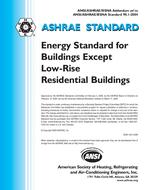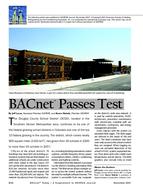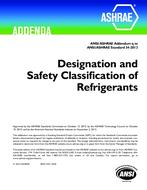Natural ventilation of buildings found widespread application in the 1920-1940 era when ventilation due to wind and thermal effects was routinely incorporated into building designs.1 The acceptance and general use of air conditioning since that period, however, has limited its use mainly to industrial buildings, Presently, there seems to be a resurgence of interest in natural ventilation as a building energy conservation technique.
Estimating natural ventilation fl’ow rates in buildings or evaluating building designs with regard to natural ventilation poses a difficult problem even today, as there are no reliable solution methods. Variables that affect natural ventilation in buildings are many, and the interactions between them are difficult to predict. The scale model test technique described here enables one to estimate, with reasonable accuracy, building ventilation flow rates due to wind as a function of its primary variables. Use of this method is illustrated by its application to the determination of wind-induced ventilation flow rates in earth-bermed, above-ground, fallout shelters (Fig. 1) in a study performed for the Federal Emergency Management Agency.
Citation: ASHRAE Transactions, Volume 88, Part 1, Houston, TX
Product Details
- Published:
- 1982
- Number of Pages:
- 13
- File Size:
- 1 file , 2.7 MB
- Product Code(s):
- D-HO-2676


